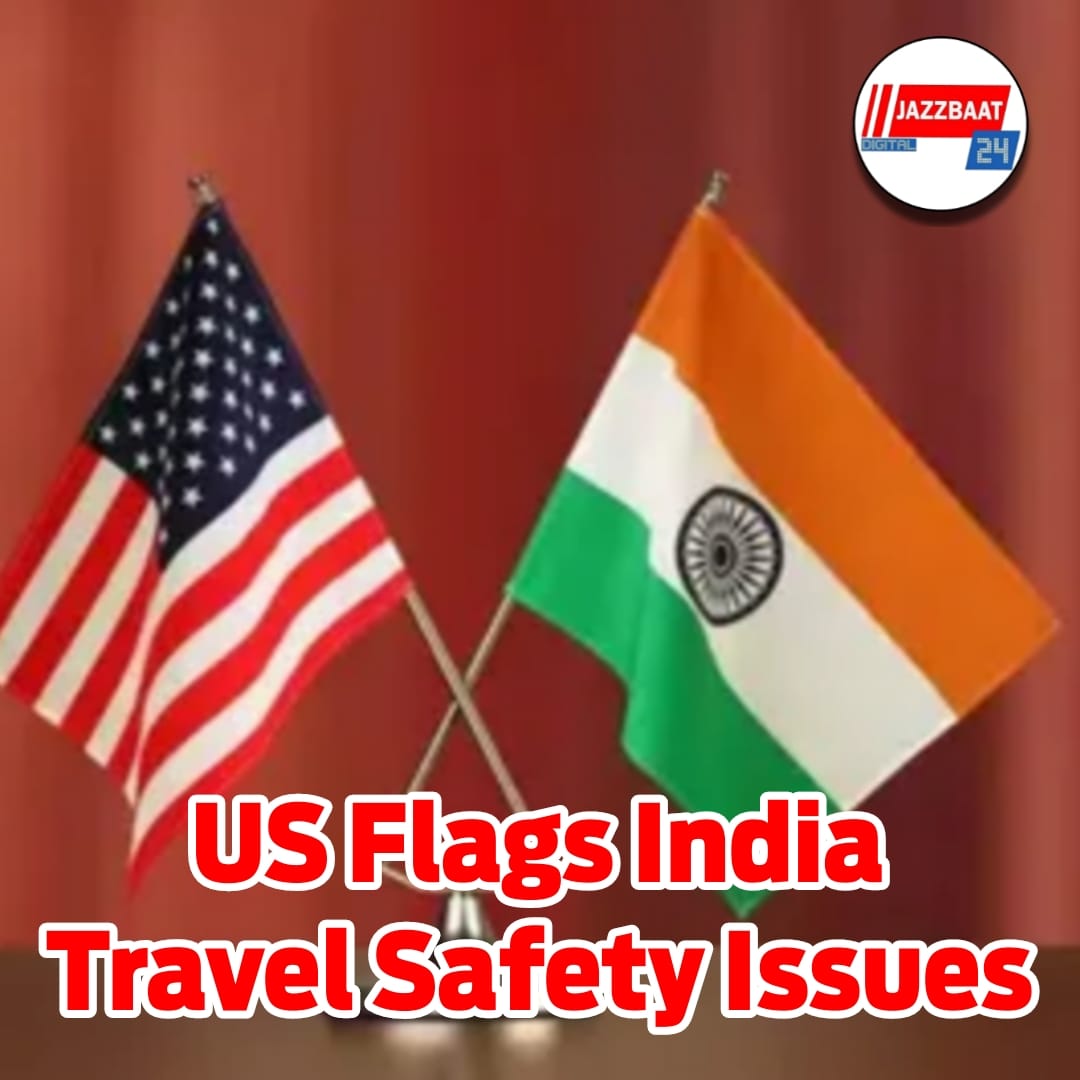
By Sulagna Halder
New Delhi, June 22, 2025:
Citing growing threats of terrorism and crime, the US State Department has raised its travel advisory to Level 2, Exercise increased caution. Additionally, the June 16 update specifically warns American women against traveling alone. According to the advisory: "One of the crimes in India that is expanding the fastest is rape.
Serious worries about personal safety are highlighted by the fact that violent crimes, including sexual assault, occur at tourist destinations and other places. Additionally, it cautions that "terrorists may attack with little or no warning," focusing on crowded areas like marketplaces, transit hubs, retail centers, and government buildings.
Importantly, the advisory emphasizes that the US government has "limited ability to provide emergency help to its citizens in India's rural regions," specifically those that extend from western West Bengal to northern Telangana and eastern Maharashtra.
Before visiting these high risk areas, US government employees need special permission. Additionally, the union territory of Jammu and Kashmir (apart from eastern Ladakh and Leh), areas within 10 km of the India-Pakistan border, parts of central and east India affected by Naxalite activity, and the northeastern state of Manipur are flagged as being under a "Do Not Travel" alert (Level 4).
The advisory also cautions that it is illegal to carry satellite phones or GPS devices in India, and doing so could result in fines of up to $200,000 or three years in jail. The Smart Traveler Enrollment Program, having a backup plan, and keeping an eye on local media for updates are all advised for Americans. The US Embassy in New Delhi emphasizes that while the majority of violence is local, there are possible threats all over the country. It suggests greater vigilance and cautions against women traveling alone after violent crime reports.
The advisory is anticipated to be answered by Indian officials. Authorities have expressed concerns about illegal weapons and extremist threats along the northeastern border, even though India still welcomes foreign visitors, including Americans.
Travel experts advise foreign tourists to use reliable local guides and stay away from remote locations, particularly during monsoon flooding periods. Women who travel alone are advised to avoid unreliable ride-sharing services, choose daylight travel, and stay in well lit public areas.
The updated US advisory serves as a reminder of latent risks in remote or conflict-affected regions, even though most of India, from Chandigarh to Chennai, is still safe for tourists. As they visit various Indian locations, it counsels American tourists to stay vigilant and knowledgeable.